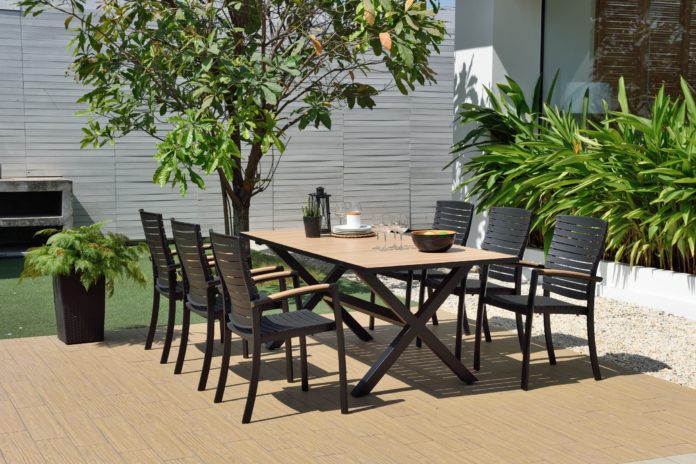The Covid-19 pandemic has shaken the world of retail to its core. While social distancing, hand sanitisation and in some cases face coverings have rapidly become the norm, one factor that was shaping consumer demand long before the pandemic continues to gain momentum: environmentally responsible shopping.
Lockdown revealed how quickly the planet can begin to recover from human activity, and that’s set to have a significant impact on consumers’ buying decisions as society attempts to emerge into the much talked about ‘new normal’. Shoppers were increasingly eco-savvy pre-COVID; now consumers can spot greenwash from a mile away and will naturally scrutinize products prior to purchase to examine their environmental credentials.
What’s driving this change in mindset? Before to the pandemic, Sir David Attenborough’s Blue Planet II series, which highlighted the devastating impact of plastic waste on the world’s oceans, and teenage activist Greta Thunberg’s Climate Strikes, gave rise to a new global movement that brought environmental activism to the masses and demanded genuine change. While the pandemic has resulted in human tragedy, it has brought environmental recovery on a scale that previously would have appeared unimaginable in our lifetime.
Take air pollution, for example. In Europe alone, it’s estimated that 11,000 deaths have been avoided when lockdown saw demand for oil and coal consumption plummet. According to the Centre for Research on Energy and Clean Air, measures to slow the spread of coronavirus resulted in a 40% reduction in nitrogen dioxide pollution and a 10% fall in particulate matter pollution. Immediate health benefits, the study claims, include 1.3million fewer days of work absence, 6,000 fewer cases of asthma in children and 1,900 avoided emergency visits to the hospital due to asthma attacks.
Plus, the global shutdown of passenger travel – in particular aviation – is predicted to lead to a record 5% fall in global carbon emissions from fossil fuels, equating to 2.5billion tonnes of carbon. During lockdown in London, according to the BBC, traffic levels fell back to those not experienced since the early 1970s, to around 35% of the normal level, further enhancing air quality. In China, where Covid-19 originated, carbon emissions fell by around 25% at the start of the year, when the strict lockdown was enforced, while a report in the Evening Standard claimed that citizens in northern India saw the view of the Himalayan mountains for the first time in their lives, due to the sudden drop in air pollution. And in one of the most memorable stories to arise as a result of the pandemic, Venice’s famous canals appeared to be clearer, as boat traffic serving tourists ground to a standstill. Footage from the European Space Agency has revealed astonishing drops in air pollution as the atmosphere started to clear.
While there is no doubt that lockdown had a profound impact on reducing air pollution, global turmoil arising from Covid-19 will have little effect on one of the most pressing environmental concerns of our generation – the horrifying volume of plastic waste that’s suffocating marine life in the world’s oceans. Around 300 million tonnes of plastic waste is created globally every year, with eight million tonnes ending up in the world’s oceans, polluting the water and killing more than 100,000 marine creatures. With shoppers around the world buying one million plastic drinking bottles every minute – a figure that’s predicted to jump by another 20% by 2021, it is feared that by 2050, our oceans could contain more plastic than fish.
Thankfully, long before the pandemic struck, Lifestyle Garden®, the leading supplier of sustainable outdoor furniture, was already ahead of the curve – transforming an ambitious concept to turn ocean plastic waste into cutting-edge, affordable, contemporary furniture. The company’s vision resulted in the birth of DuraOcean®, the first mass-market chair made from recycled fishing nets, ropes and debris collected from the world’s oceans. Not only has DuraOcean® set a new benchmark for sustainable material usage and design (each DuraOcean® chair is made from 3.5kg of recycled plastic) but it has already helped to remove 150,000kgs of debris from the oceans – and that’s just the beginning of the story.
Paul Cohen, Sales Director at LifestyleGarden®, said: “The Covid-19 pandemic has impacted every element of our lives, while reshaping society’s attitude to the planet we call home. While many of us long for normality to resume, lockdown combined with the tragedy of the pandemic has made us all reassess our priorities in life and value the precious natural world around us. No longer is the public prepared to tolerate plastic pollution: look at how recent stories about the volume of plastic waste on beaches have made national headlines.”
Paul added: “For much of the nation, spending so much time at home this spring and summer has resulted in gardens and outdoor spaces becoming sanctuaries; a place to spend quality time with those closest to us and reflect on the impact that modern lifestyles are having on the environment. It’s no surprise that sales of garden furniture for relaxing and dining al-fresco have witnessed significant growth despite the challenging retail environment, but the consumer mindset is changing. Value for money will remain at the fore in a recessionary environment, but a shift away from throwaway culture and fast fashion to local and sustainable shopping is set to gather pace. Brands that demonstrate a deep-rooted, long-term commitment to environmental responsibility – which runs in the DNA of LifestyleGarden® and its parent company ScanCom – are ideally positioned to win the hearts and minds of eco-conscious consumers who will go to greater lengths than ever before to track down products that leave the planet in a better state for future generations.”
LifestyleGarden® is confident that demand for products such as DuraOcean®, with each chair sold making a positive environmental contribution, will continue to increase. Ever since its launch last year, DuraOcean® has been making strides at tackling a global issue, having scooped the Best New Product award at its launch at the 2019 SOLEX exhibition. Now, LifestyleGarden® is now preparing to expand the range, ramping-up an initiative that will result in vast quantities of marine waste being salvaged from the oceans and transformed into contemporary furniture that’s on-trend for 2021.
In an exciting development for next season, LifestyleGarden®’s parent company, ScanCom International, will introduce a new DuraOcean® chair, that will be presented in the new Panama collection, as a black slatted stackable chair design. Perfect for dining, the new DuraOcean® Panama chair will feature 3.5kg of recycled ocean plastic waste, meaning a standard six-seater dining set will be responsible for minimising the plastic floating in our oceans by 21kgs.
Prices for DuraOcean® start from just £179.99 for a set of two chairs, £249 for a bistro set, and £499 for a four-seater set. DuraOcean® can be purchased online at www.edenproject.com, www.robertdyas.co.uk, through the Retailer list at www.lifestylegarden.com.
Find out more
If you want to find out more about LifestyleGarden® and its premium-quality outdoor furniture, please visit us at www.lifestylegarden.com and follow the team on Facebook and Instagram.












